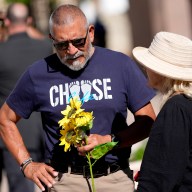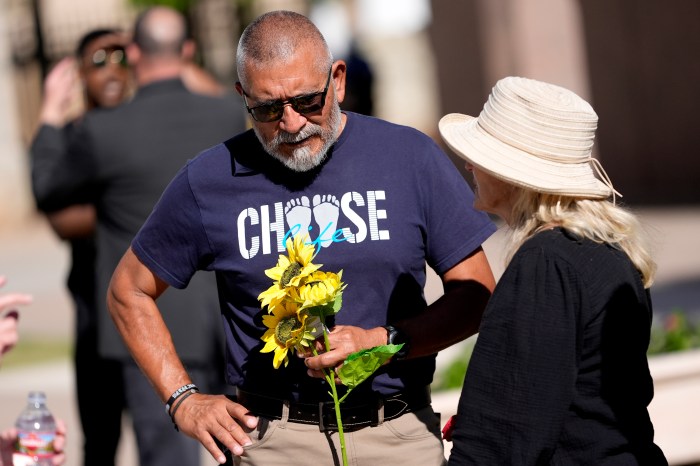KANDAHAR, Afghanistan – The hit-and-run nature of the bloody insurgency that has wreaked so much havoc in Afghanistan is a clear sign the resurgent Taliban aren’t interested in winning the support of local Afghans, Canada’s ambassador to Kabul said Wednesday.
While the insurgents are determined in their fight, Ron Hoffmann said their main weapons remain suicide bombers and scattered improvised explosive devices, which they often use to devastating effect.
“This is an approach which certainly demonstrates that insurgents have given up on any suggestion that they’re going to win the hearts and minds of Afghans,” Hoffmann said by telephone from Kabul.
“The principal victims are the Afghan people.”
Hoffmann said the international community had underestimated how hard it would be to crush the insurgency and help Afghanistan get on its feet after decades of war destroyed the country’s infrastructure and intellectual capacity.
With popular support both in Canada and the U.S. wavering for the costly multinational mission, Hoffmann said it was critical now to show real progress.
“There is a sense of urgency in Afghanistan. There is a sense of urgency by the Afghans themselves. They are to some extent disappointed over the lack of progress,” he said.
The ambassador refused to speculate on the shape of Canadian involvement after 2011, when Ottawa has pledged to withdraw the country’s 2,800 soldiers, saying no decisions had been made.
What is certain, he said, is that Canadians will remain in Afghanistan after the troops leave.
Hoffman dismissed suggestions that Canada’s outreach program – the provincial reconstruction team based at Camp Nathan Smith in Kandahar – might be shut down, particularly if the security provided by the military is no longer available after 2011.
One answer, he suggested, might be the wider use of private companies to provide security for civilians.
Canada’s outreach approach stands out as a model, he added. “It’s a model that puts primacy on Afghan sovereignty and Afghan leadership.”
Hoffmann said the next couple of years are going to be crucial in defining the country’s future.
In particular, the national government and its security forces will have to strengthen significantly, something the country’s army is already showing signs of doing.
Hoffmann, who has been in Kabul for almost two years, said he believed there are elements of the Taliban, especially at the local level, which are “tired of fighting.”
“They are not fighting for ideological reasons – they’re fighting for a variety of other reasons, whether its tribal pressure, family pressure, poverty.”
The Taliban are also distancing themselves from al-Qaida and the global Islamist movement in Afghanistan, but Hoffmann said he doesn’t expect significant progress toward reconciliation between the insurgents and the Afghan government.
Despite the grim picture, Hoffmann said the country is showing signs of progress and he remains optimistic about its future.
The elections, currently slated to take place in August, are especially important because they will be the first such democratic exercise to be run by the Afghans themselves.
Any Taliban attempt to disrupt them will likely have limited success because millions of people are going to demonstrate their preference for a democratic system and stronger national government by voting, Hoffmann predicted.
















